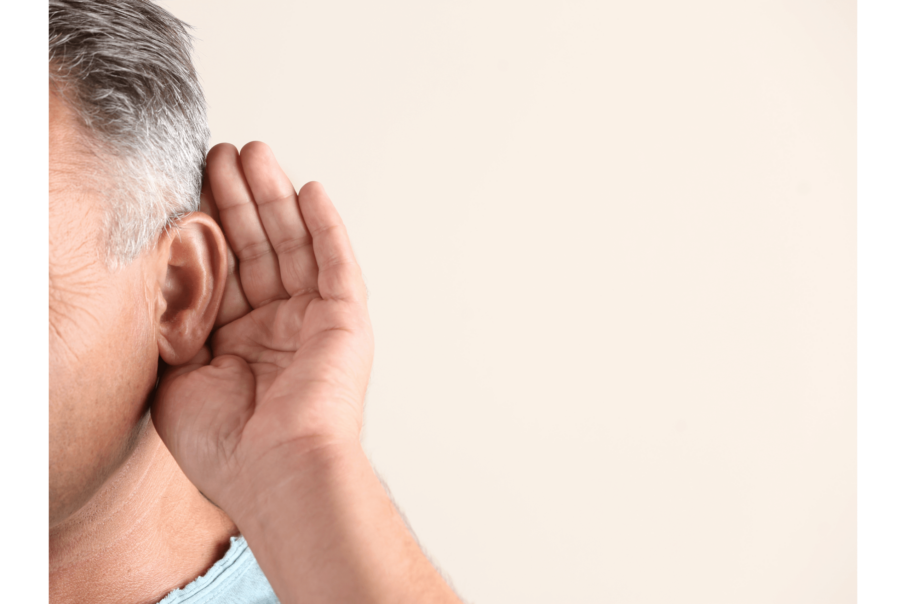Life is composed of countless sounds, each offering a unique range of experiences. As we journey through life, we become more attuned to the world around us through our sense of hearing. However, for many older adults, the passage of time brings about changes, and age-related hearing loss, known as presbycusis, becomes a reality. Let’s take a closer look at age-related hearing loss, from its causes and symptoms to prevention strategies and available treatments.
What Causes Age-Related Hearing Loss?
Age-related hearing loss is a natural, gradual decline in auditory functioning that often begins to manifest around the age of 55 or 60. It is the most common type of hearing loss, impacting countless individuals worldwide. Age is the main factor associated with presbycusis, but other elements can exacerbate the condition:
- Genetics: Our family’s history can influence our risk of developing age-related hearing loss. If your family has experienced hearing challenges, you might be more prone to hearing loss.
- Noise Exposure: Loud environments, whether at work or during leisure activities, can accelerate age-related hearing loss, making hearing loss worse.
- Inner Ear Changes: The tiny, delicate hair cells within the inner ear, responsible for transmitting sounds to the brain, naturally degrade over time.
- Circulatory Factors: Reduced blood flow to the inner ear can negatively impact hearing by depriving it of essential nutrients.
- Health Conditions: Conditions like diabetes, hypertension, and cardiovascular disorders may increase the risk of age-related hearing loss.
Can You Recognize the Signs of Age-Related Hearing Loss?
The onset of age-related hearing loss is often a gradual process, making it easy to overlook early signs. In fact, your loved ones may notice changes in your hearing before you do. Here are some common cues to watch for:
- High-Frequency Sounds: The subtle sounds of chirping birds, children’s laughter, or a soft whisper might become increasingly challenging to hear.
- Speech Comprehension: Conversations in crowded or noisy areas may become more difficult, and you may notice challenges with speech comprehension in places with background noise.
- Repeated Requests for Repetition: You might find yourself frequently asking people to restate what they’ve said.
- Volume Adjustments: Raising the volume on your TV, radio, or music devices to hear is very common if you have age-related hearing loss.
- Tinnitus: The presence of ringing, buzzing, or hissing in your ears may accompany age-related hearing loss.
Preserving Your Hearing Health
Although complete prevention of age-related hearing loss may be elusive, there are proactive measures to safeguard your hearing.
Earmuffs and Earplugs: Shield your ears in noisy environments by wearing earmuffs or earplugs to protect against excessive sound exposure.
Routine Hearing Checkups: Regular hearing assessments, ideally on an annual basis, can help you monitor your hearing health and spot changes right away.
Healthy Lifestyle Choices: Sticking to a well-balanced diet, staying physically active, and managing chronic health conditions can bolster overall well-being, including hearing health.
Noise Mitigation: Whenever possible, minimize exposure to loud noises, whether by lowering the volume on personal music devices or taking breaks from noisy environments.
Treating Age-Related Hearing Loss
If age-related hearing loss is a concern, it’s important to consult a hearing health professional. While age-related hearing loss may be irreversible, numerous treatments and interventions can enhance your quality of life:
- Hearing Aids: Among the most common and effective solutions for hearing loss, hearing aids amplify sounds and facilitate improved communication.
- Cochlear Implants: In more severe cases, cochlear implants can provide an alternative by bypassing damage in the ear. They can transmit clearer auditory signals to the auditory nerve.
- Assistive Listening Devices: These devices complement hearing aids, enhancing sound clarity across various settings, from watching TV to making phone calls.
Book Regular Hearing Tests
Age-related hearing loss can be part of the aging process, but there’s no need to face it in isolation. Book annual hearing tests to monitor your hearing health. We’ll help you maintain your hearing health and suggest treatment options if you have hearing loss. With the help of hearing aids and assistive listening devices, you can enjoy all of life’s


